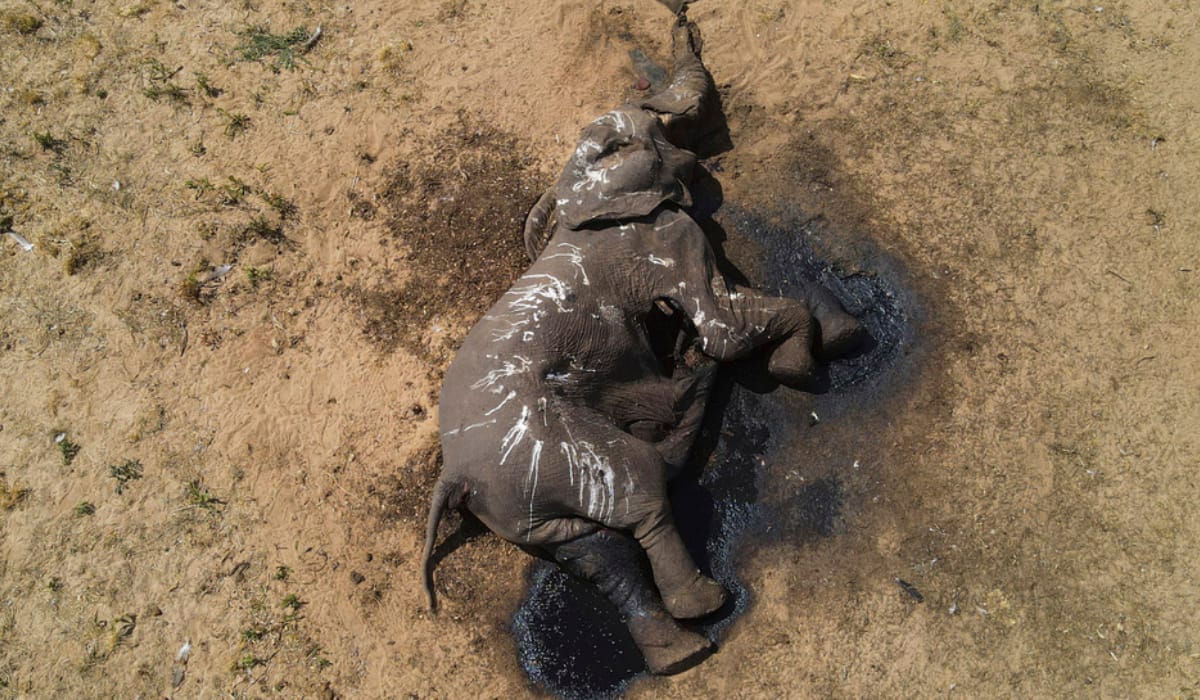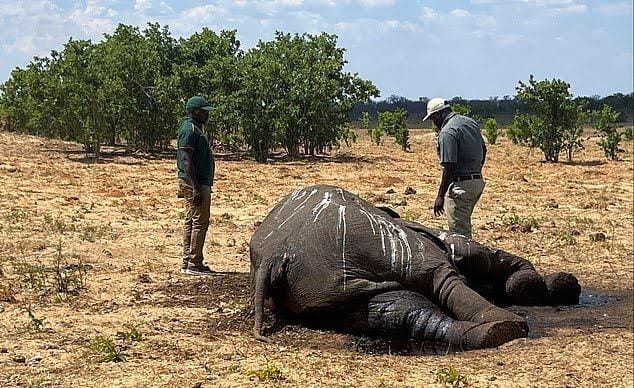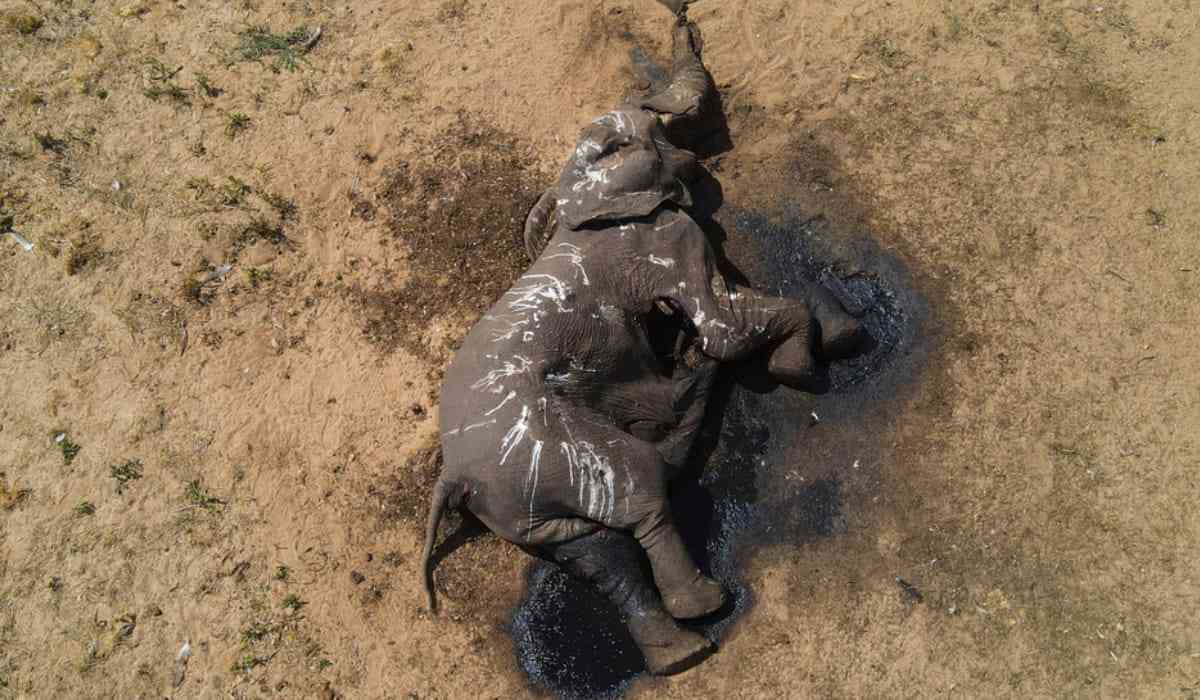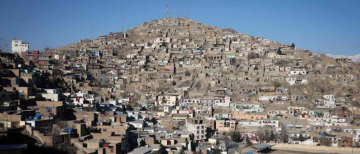The largest national park in Zimbabwe has seen at least 100 elephant deaths in recent weeks due to drought; the corpses of these animals are a graphic symbol of the effects of climate change and El Nino weather patterns, according to wildlife authorities and conservation groups. Forecasts indicate a lack of rain and increasing temperatures in some areas of the country in southern Africa, including Hwange National Park, prompting authorities to issue a death threat. Elephants and other animals are facing a catastrophe, according to the International Fund for Animal Welfare.

Experts from the International Fund for Animal Welfare (IFAW) claim that the park's severe drought, along with the elephants' precarious living circumstances, ultimately caused their deaths. With over 400 different species of birds and over 100 mammal species, Hwange National Park is home to about 45,000 elephants. Authorities at the park acknowledge that the current infrastructure is inadequate, despite efforts to maintain water sources for the species with 104 solar-powered boreholes. Waterholes are drying up due to the extreme temperatures, which forces animals—especially the young, old, and sick—to travel great distances in search of food and water.
Zimbabwe National Parks and Wildlife Management Authority's stated..
The Zimbabwe National Parks and Wildlife Management Authority's Tinashe Farawo highlighted the fragility of elephants that are unable to travel great distances in search of water. The alarming circumstance highlights the significant effects of El Nino weather and climate change on the ecosystems in the area. El Nino this year is expected to bring below-average rainfall to southern Africa and has caused devastating floods in East Africa. Rising temperatures and little rainfall have been reported in Zimbabwe, raising fears of a repeat of the disastrous 2019 drought that claimed over 200 elephant lives in Hwange.

Phillip Kuvawoga and Trevor Lane express their concern
In an update, Phillip Kuvawoga, the director of IFAW's landscape program, highlighted the recurrent nature of the phenomenon and expressed concern for the elephants of Hwange. With extended dry spells, Zimbabwe's once-reliable rainy season has become unpredictable.
The director of The Bhejane Trust, a conservation organization that aids Zimbabwe's parks department, Trevor Lane, voiced worries about an impending El Nino-related dry spell. The organization pumps 1.5 million liters of water every day from more than 50 maintained boreholes into Hwange's waterholes, and the region depends greatly on its efforts.
The unique wildlife that calls Hwange National Park home is fighting for survival as a result of ongoing climate change, which highlights the critical need for long-term conservation strategies.
IMAGE SOURCE-X
©️ Copyright 2023. All Rights Reserved Powered by Vygr Media

























